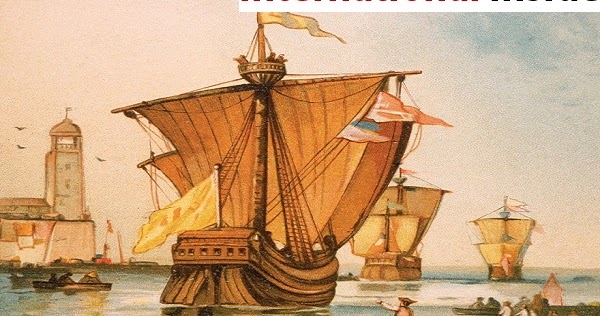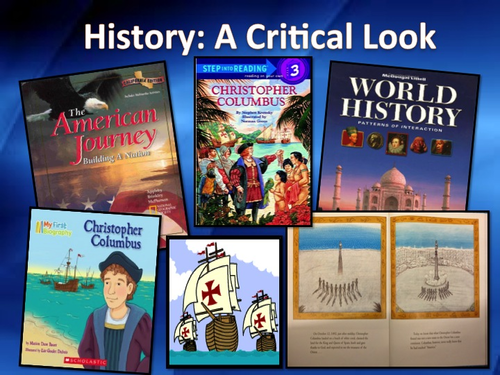Rethinking the Legacy of Christopher Columbus
The “Discovery” of the Americas
While Columbus is often credited with discovering the “New World”, in reality the Americas had been inhabited for thousands of years prior by indigenous peoples. It is more accurate to say that Columbus opened up knowledge of the Americas to wider European exploration and colonization beginning in the late 15th century. His voyages marked the start of sustained contact and relationships between European powers and the native populations.
Further North Than Previously Believed
Others had likely reached the Americas in the centuries before Columbus as well. John Cabot, an Italian navigator sailing for England, explored further north than Columbus did, making landfall in what is now Newfoundland, Canada in 1497. While the exact location is disputed, this voyage demonstrates that Columbus was not in fact the first European to reach the continent, as others had begun exploring the possibilities of lands across the Atlantic.
Motivated by Profit Rather Than Exploration
Contrary to popular myths, Columbus did not set sail to prove the Earth was round or discover a direct western route to Asia. His goal was to find riches and territories to claim for Spain in order to profit personally from any trade or exploitation. When he encountered the Caribbean islands and native peoples, he promptly asserted Spanish control and instituted violent policies of subjugation to extract wealth, resulting in massive depopulation through killings, enslavement and disease.
Imprisoned for Brutality and Mismanagement
Columbus’ excesses as governor of the newly claimed lands led to widespread complaints and eventual imprisonment upon his return to Spain in 1500 on charges of tyranny, brutality and gross mismanagement. Investigators sent by the Spanish crown found abundant evidence he had instigated bloody wars of conquest against peaceful chiefdoms, subjected natives to forced servitude and torture, and had committed other atrocities - even beyond what was considered acceptable at the time given European colonial standards.
A More Nuanced Perspective on His Legacy
While still a hugely significant historical figure, a more complete account recognizes both Columbus’ role in opening the Americas to wider contact with Europe and the exploitation, violence and dispossession that followed. His “accomplishment” was not as unique or pioneering as commonly portrayed either. Over time, a more nuanced perspective has developed that acknowledges both the costs as well as benefits of those early encounters, moving away from simplistic myths of heroic discovery towards a richer understanding.
Cabot’s Earlier, More Northerly Exploration
As noted, John Cabot sailed for England in 1497 in search of new trading routes to Asia but instead made landfall in what is noweastern Canada. While the precise location remains unknown, historical consensus recognizes this as one of the earliest documented European visits to the mainland of North America, pre-dating Columbus’ voyages. Cabot had sought not wealth or conquest but rather trade opportunities for England, representing a different model of contact than the one Columbus would later establish for Spain further south.
Indigenous Peoples Already Living in the Americas
Most importantly, neither Columbus nor any later European explorer can truly be said to have “discovered” the Americas, as indigenous peoples had inhabited the lands for millennia, with a wide variety of cultures and civilizations already well-established across the continents. At most, Europeans brought the rest of the world into awareness of lands that others had long called home. An accurate perspective acknowledges the prior existence, knowledge, and accomplishments of the native populations, not merely their later realities of colonization and its impacts.
Revisionist Perspectives on Columbus’ Legacy
Over centuries, mythologies portraying Columbus as a pioneering hero of exploration and discovery took hold in historical accounts. But more recently, revisionist historians have dug deeper into primary sources to offer a far more complex view of the man and his actions. Works like Samuel Eliot Morison’s Admiral of the Ocean Sea and Kirkpatrick Sale’s The Conquest of Paradise reveal the exploitative realities of Columbus’ governorship and complicate any simplistic legacy. Today we recognize both the historic significance as well as the human costs of those early transatlantic voyages and the processes of colonization they unleashed.
Rethinking the Legacy of Christopher Columbus
Accurate Context for Columbus’ “Discoveries”
While groundbreaking as the opening of sustained transatlantic contact, Columbus’ voyages must be placed in proper context. The Americas had seen previous dispersed European visits, and native peoples already inhabited the lands for millennia, negating any claim of sole “discovery”. Moreover, others like Cabot made northerly voyages close in time that challenge centering the legacy solely on Columbus’ experiences in the Caribbean beginning in 1492. An accurate historical perspective acknowledges fuller accounts placing his voyages in broader context.
Cabot’s Under-Recognized Prior Exploration
Although sometimes overlooked due to the renown of Columbus, the voyage of John Cabot to eastern Canada in 1497 was among the first documented European visits to mainland North America. While the precise landfall remains unknown due to limited records, historical consensus recognizes Cabot conducted voyages just prior to Columbus further south that reached the continent. Sailing for the English crown rather than seeking personal fortunes, his brief contact represented a differing paradigm of interaction between Europeans and indigenous peoples. Cabot deserves fuller acknowledgement for his role in the early transatlantic narratives.
A More Complete Columbus Biography
Key scholars in the 20th century revisited original sources to offer more nuanced biographical portraits. Works like Morison’s 1942 Admiral of the Ocean Sea and Sale’s 1990 The Conquest of Paradise demonstrated the cruelty, tyranny and abuse of power that characterized Columbus’ governorship in Hispaniola from 1493. They drew from eyewitness accounts implicating Columbus in atrocities that saw his imprisonment and return to Spain in 1500. Such revisionist perspectives round out simplified earlier histories by recognizing the costs as well as significance of early colonial encounters including their tragic human tolls.
Centering Indigenous Perspectives
Most importantly, any comprehensive telling of the early transatlantic historical currents must center the indigenous peoples who inhabited the Americas for millennia prior to European arrival. Their sophisticated cultures, knowledges and experiences navigating the lands cannot be obscured or erased from the narrative. Full recognition of native civilizations’ existence and accomplishments before colonization remains an ongoing task to redress historic omissions and move historical understandings forward in a spirit of truth and justice.

